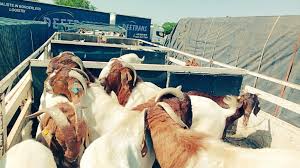Zimpapers Traditional Grains Conference kicks off tomorrow
All is set for the Zimbabwe Newspapers (Zimpapers)’ Traditional Grains Conference at the Zimbabwe International Exhibition Centre (ZIEC) in Bulawayo tomorrow.
Organised by our sister paper, Sunday News, the event gathers stakeholders to discuss and develop strategies for sustainable small grains production.
Running under the theme “Unlocking the potential of traditional grains for food and feed security”, the event partners with the Ministry of Lands, Agriculture, Fisheries, Water and Rural Development and the International Crops Research Institute for the Semi-Arid Tropics (Icrisat) Zimbabwe.
Traditional grains are crucial in Zimbabwe’s agricultural sector, contributing to food security, nutrition, and sustainable livelihoods.
Pfumvudza/Intwasa
The conference follows the approval of the Summer Plan for the 2024/25 season by Cabinet, focusing on agro-ecological mapping and climate-proofing at household (Pfumvudza/Intwasa) and national levels (irrigation), with the Presidential Input Programme enhancing traditional grain seed provision.
The southern parts of the country, including the Matabeleland, Midlands and Masvingo provinces are most suitable for growing small grains like sorghum and pearl millet, aligning with climate patterns and ecological zone profiling.
Lands, Agriculture, Fisheries, Water and Rural Development Permanent Secretary, Professor Obert Jiri, the keynote speaker at tomorrow’s event, has called for wider adoption of climate-smart farming technologies through growing crops suitable for specific agro-ecological regions to improve productivity.
“Regardless of any climate variability, a farmer must always respect the dictates of agro-ecological regions and should be advised of the correct crops to grow to ensure food security from the household to the national level,” he said recently.
Millet
Studies show that crops from farmers who embrace agro-ecological matching fare better than those produced without considering specific regional requirements.
Hence, the strategy’s implementation has increased traditional grains cultivation, especially in the southern provinces.
Prof Jiri emphasised that tomorrow’s conference is critical for enhancing climate resilience and sustainable production, development, and commercialisation of traditional grain varieties.
During the expo, participants will showcase successful business models and partnerships in the traditional grains value chain and present cutting-edge research on improving yields, disease resistance and climate resilience while examining the policy landscape and opportunities for supportive regulations.
Icrisat Zimbabwe country representative and farming systems analysis principal scientist, Dr Martin Moyo, said the conference is timely for stakeholders in agriculture to reflect on improving food and nutrition security in the country.
Irrigation
“Although sorghum and pearl millet are more tolerant to these abiotic constraints than maize, their productivity remains limited,” he said. “This conference will, therefore, be important to unlock the potential contribution of these traditional grains to food and nutrition security in the country.”
Dr Moyo said the conference will highlight the benefits of traditional grains.
The one-day event includes a keynote address, interactive sessions, and panel discussions.
Proposed activities feature an opening ceremony and formal session with speeches from Government officials and experts, emphasising the importance of traditional grains production and setting the context for the indaba.
The panel discussions will be expert-led on various topics, such as best agronomic practices, climate-smart farming techniques, market opportunities, value addition, and post-harvest management.
There will also be knowledge sharing through presentations by researchers, successful farmers, and industry experts, sharing their experiences, innovations, and success stories in traditional grains production.-chroncile









